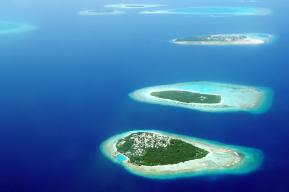Article
“Journalism Must Survive Because Humanity Must Survive”, states Khadija Patel at WPFD

Youth Multimedia Room
The article was produced by the Youth Multimedia Room. The views and opinions expressed in this article are those of the contributors of the Youth Multimedia Room and do not represent the views of UNESCO or its partners. The designations concerning the legal status of any country, territory, city or area, or of its authorities, or concerning the delimitation of its frontiers or boundaries do not imply the expression of any opinion whatsoever on the part of UNESCO or its partners.
In a video message recorded for the session, Wael Al-Dahdouh, bureau chief of Al Jazeera in Gaza, highlighted the ultimate sacrifices his colleagues, friends, and family members made in order to make the truth of the conflict accessible to Palestinians and to the rest of the world: “we have paid a very high cost to get information out and to deliver it.” This cost, according to the Committee to Protect Journalists (CPJ), is the highest of any conflict since 1992, when CPJ began tracking the killing of journalists during conflict.
The number of journalists killed while reporting on conflict and war, according to Irene Khan, UN Special Rapporteur on freedom of expression and opinion, will only grow as the climate crisis worsens. “Environmental damage leads to conflicts,” she stated, using the conflicts in Darfur and Palestine as examples. She emphasized that these situations are everywhere, with communities, governments, and companies fighting over natural resources. With conflict journalism and environmental journalism being the two most dangerous fields of journalism, it is clear that an increase in either crisis will further endanger journalists.
Panelists called on the lack of protections for journalists reporting on conflict, criticizing the impunity that perpetrators of violence against journalists are granted. In order to decrease the risk for such journalists, Khan stated, impunity needs to be addressed. Zuliana Lainez, Vice President of the International Federation of Journalists of Larin America and the Caribbean, stated that when a journalist is killed, what is also killed is “the possibility to reach the truth. It is a collective right that is being threatened”. This impunity not only affects the field of journalism but our collective right to the truth as well.
The issue of impunity, according to the panelists, is amplified by the seeming lack of interest from the general public. While panelists questioned how to fix this lack of support from civil society, Khadija Patel, an investigative journalist from South Africa, had a simple answer: “because they cannot see themselves reflected in the practice of journalism as it has been held up around the world.” Patel has a humanist view of journalism, using UNESCO’s declaration of information as a public good to emphasize the “human instinct” of journalism.
And while information may finally be seen as a public good, Patel highlighted that, in reality, “we face information inequality on many levels.” In some instances, she elaborated, this inequality exists in situations where some are protected when telling the truth while others are not. In a powerful statement, Patel spoke of journalism as an extension of humanity and emphasized that journalism needs to be reflective of all people.
The situation in Gaza, she stated, has global ramifications for the news ecosystem. It has exposed both the importance of journalism to humanity and the incredible risks that journalists face with limited support from civil society and from institutions that are meant to protect them. After this crisis, she stated, “we cannot emerge from this crisis with the same journalism that serves only a few.”
In response to this challenge, Dima Khatib, managing director of AJ+, announced the launch of a campaign called “Targeting Journalists is a Crime” to raise more awareness. In order to improve the situation for journalists in Gaza and worldwide, she stated, “the conversation about journalists needs to be part of all conversations about human rights”.
Olga Bednarek




